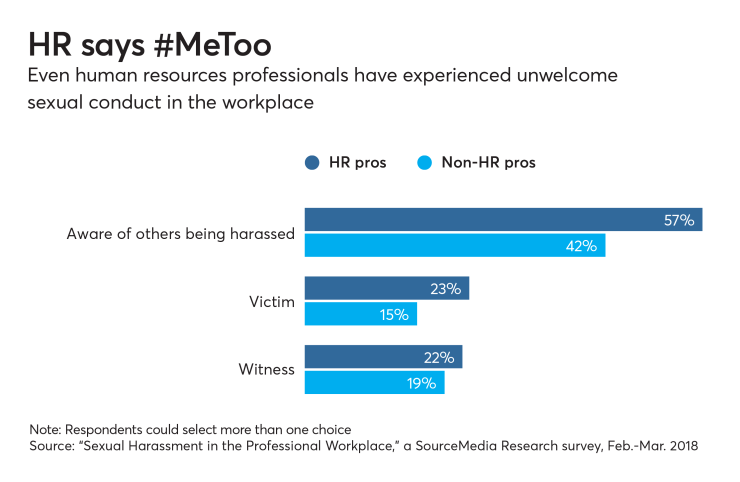Despite having only three active members on its five-member Commission and having no General Counsel, the EEOC has remained quite busy in its strategic enforcement of federal workplace discrimination laws. You may remember that since the 2016 election, the EEOC has been operating with an acting Republican Chair and two Democratic Commissioners, with the remaining two Republican Commission seats vacant while President Trump’s nominees are tied up in the confirmation process. One might think that the absence of a General Counsel and two Commissioners would hamper the EEOC’s enforcement efforts, but one would be wrong. EEOC litigation picked up in the fiscal year ended September 30, 2018, and the agency just held a major public hearing in October to further its focus on workplace harassment.

Here are a few highlights:
- The number of gender-based harassment charges filed with the EEOC reached an all-time high of 13,055 for the most recent fiscal year;
- The agency reported a nearly 14% increase in sexual harassment charges and a 50% increase in lawsuits alleging sexual harassment;
- The agency recovered $505 million in relief for victims of workplace discrimination, including nearly $70 million for victims of sexual harassment; and
- The agency filed 199 new lawsuits seeking relief for workplace discrimination.
As we have
The EEOC has also continued to focus on workplace harassment with a major public hearing on October 31, 2018. Several witnesses discussed topics such as the need for change in the “tone at the top,” the need for employers to continue presenting effective workforce harassment training, and the recommendation that companies conduct “a workplace culture assessment.” There also were recommendations that nonprofit boards provide effective and ongoing oversight of CEOs to prevent and address workplace harassment. The public hearing was a follow-up to a June 2016 EEOC Task Force report on harassment in the workplace.
It is unclear whether the eventual confirmation of the two new Commissioners and a General Counsel will substantially alter any of the strategic priorities or courses of action that the EEOC has been following in these areas. However, we know that the acting EEOC Chair and a Commissioner whose term will be extended have both emphasized that holding people accountable will remain a critical feature of the agency’s efforts to eradicate workplace harassment. Therefore, employers would be wise to continue their training and workplace policy enforcement at all levels of management in the work force.
This article originally appeared on the





